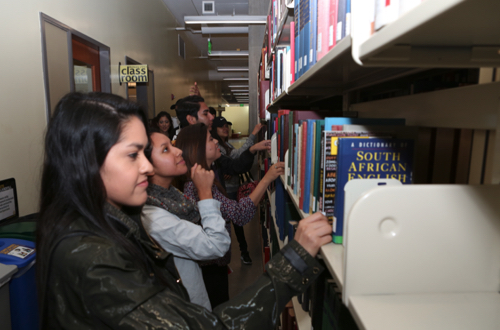September provides our campus with two platforms to recognize the achievements and contributions of Hispanic and Latinx Americans and share with the public the important role UC Santa Cruz and other universities play in creating educational equity.
Hispanic Heritage Month, which kicks off tomorrow, celebrates the many contributions and cultures of Hispanic and Latinx Americans. National Hispanic Serving Institutions Awareness Week, which began Monday, allows HSIs like UC Santa Cruz to highlight the critical role they play in educating and empowering Latinx students.
In observing both, we pay tribute to the generations of Latinx Americans who have advanced our nation and society, while we also spotlight the work taking place on our campus to foster and support the next generation of Latinx leaders.
At UC Santa Cruz, we are proud to be a Hispanic Serving Institution, a designation from the U.S. Department of Education for an institution that has enrollment of undergraduate full-time equivalent students that is at least 25 percent Hispanic. Our Latinx students, as well as our Latinx staff, faculty and managers, are a vital part of what makes our university a rich and multicultural institution of higher learning. We are especially proud to be one of only four HSIs in the nation — there are 569 — that are also members of the esteemed Association of American Universities, an organization composed of North America's 66 leading research universities
Our campus is set to launch a host of new programs — while continuing others already in place — that support the success of our Latinx, low-income, first-generation, and underrepresented students. The efforts of our Hispanic Serving Institution Initiatives team, working in collaboration with faculty and staff across campus, are detailed in a story in today’s Tuesday Newsday, “Pairing research excellence and status as a Hispanic-Serving Institution, UC Santa Cruz launching new programs to advance educational equity.”
Look for stories on our newscenter through this next month that recognize the positive and transformative influence of Latinx culture in our society and highlight work being done by our faculty and students that promote the cross-cultural exchange of ideas. Among them:
- Chemistry professor Laura Sanchez recently took part in the inaugural Breaking Barriers Through Chemistry Conference. The conference’s goal is to bring together professors from across that field to establish, strengthen, and promote research collaborations between institutions in Mexico, United States, and Europe.
- Alumni from our Human Rights Investigations Lab for the Americas, which is part of our Latin American and Latino Studies Department, are working for Media Matters through the Voto Latino project to track Spanish-language disinformation online.
- Graduate student Rafael Delgadillo’s research addresses New Orleans’ place in the Americas beyond the United States, and posits why, even with its complicated colonial past, it can be considered a historic center of the Americas.
- Ismael Illescas, also a graduate student, has immersed himself in the graffiti-writing subculture in Los Angeles, analyzing the contradictory representations of graffiti as either a symbol of crime and urban decay or as street art that processes gentrification, racial segregation, and the criminalization of Black and Latinx youths.
The roots of Hispanic Heritage Month date to 1968. The Sept. 15 start-date was chosen because it is the anniversary of independence of five Hispanic nations: Costa Rica, El Salvador, Guatemala, Honduras, and Nicaragua, all of which declared their independence on that day in 1821. Mexico, Chile and Belize also celebrate their independence days this month.
As a university that believes our high-quality education can be a pathway to future success in life, we champion this month as an opportunity to educate our community about Hispanic and Latinx heritage and honor the rich cultural traditions of Hispanic and Latinx Americans.



